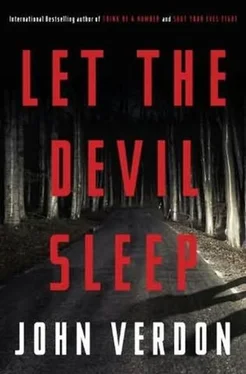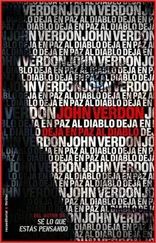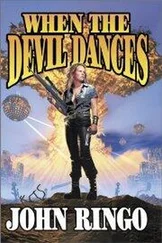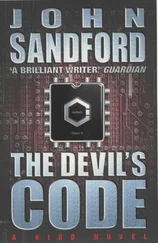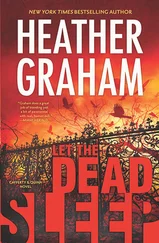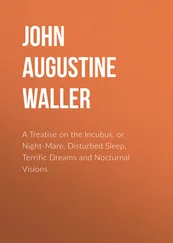The man’s eyes were glistening with incipient tears.
Kim’s next words were a surprise. She asked Stone if she could have a cookie.
He burst out laughing-a giddy, hysterical outpouring that sent the tears down his cheeks. “Yes, yes, of course you can! My gingersnaps just came out of the oven, but there are also pecan chocolate chips, buttery-buttery shortbreads, and oatmeal raisin. All baked today.”
“I think oatmeal raisin,” she said.
“An excellent choice, madam.” He sounded like he was, through his tears, attempting to mimic a smarmy sommelier. He went to the far end of the kitchen and retrieved a plate heaped with large brown cookies from the top of the oven. Kim held up her third camera, keeping him in the frame all the while.
As he was about to lay the plate on the table, a thought seemed to stop him. He turned to Gurney. “Ten years,” he said, as if some new significance in the number had taken him by surprise. “Exactly ten years. A full decade.” The pitch of his voice rose dramatically. “Ten years, and I’m still a basket case. What do you make of that, Detective? Does my pathetic condition motivate you to find, arrest, and execute the evil fucker who murdered the most incredible woman in the world? Or am I so ridiculous you just want to laugh?”
Gurney tended to ice over at displays of emotion. Now was no exception. He answered with a matter-of-fact blandness. “I’ll do everything I can.”
Stone gave him an archly skeptical look but didn’t pursue the issue.
He offered them coffee again, and again they both declined.
After that, Kim spent some time eliciting descriptions of the man’s life before and after his mother’s murder. In Stone’s detailed narrative, life before was better in every way. Sharon Stone had been an increasingly successful player at the top end of the second-home real-estate market. And she lived her personal life at the top end in every way, sharing that luxury freely with her son. Shortly before the brutal intervention of the Good Shepherd, she’d agreed to cosign a $3 million financing agreement to set Eric up as owner of the premier inn and restaurant in the Finger Lakes wine country.
Without her supportive signature, however, the deal collapsed. Instead of enjoying the life of an elite restaurateur and hotelier, he was at thirty-nine living in a house whose estate grounds he couldn’t begin to maintain and trying to make a living baking cookies in his late mother’s dream kitchen for local gourmet shops and B &Bs.
After an hour or so, Kim finally closed the small notebook she’d been consulting and surprised Gurney by asking if he had any questions of his own.
“Maybe a couple, if Mr. Stone doesn’t mind.”
“ Mr. Stone? Please, call me Eric.”
“All right, Eric. Do you know if your mother ever had any prior business or personal contact with any of the other victims?”
He winced. “Not that I know of.”
“Any enemies you knew of?”
“Mother did not suffer fools gladly.”
“Meaning?”
“Meaning she ruffled feathers, stepped on toes. Real estate, particularly at the level at which Mother operated, is a very competitive business, and she didn’t like to have her time wasted by idiots.”
“Do you remember why she bought a Mercedes?”
“Of course.” Stone grinned. “Classy. Stylish. Powerful. Agile. A major cut above the others. Just like Mother.”
“Over the past ten years, have you had any contact with anyone connected with the other victims?”
He winced again. “That word. I don’t like it.”
“What word?”
“ ‘Victim.’ I don’t think of her that way. It sounds so horribly passive, helpless, all the things that Mother wasn’t .”
“I’ll put it another way. Regarding any contact with the families-”
Stone interrupted. “The answer is yes, there was some contact at first-a kind of support group that came together after the shootings.”
“Were all the families involved?”
“Not really. The surgeon who lived in Williamstown had a son who joined us once or twice, then announced he had no interest in a grief group because he had no grief. He said he was glad his father was dead. He was quite awful. Totally hostile. Very hurtful.”
Gurney glanced at Kim.
“Jimi Brewster,” she said.
“Is that all?” asked Stone.
“Just two more quick ones. Did your mother ever mention anyone she was afraid of?”
“Never. She was the most fearless human being who ever walked the earth.”
“Was ‘Sharon Stone’ her real name?”
“Yes and no. Mostly yes. Her name was officially Mary Sharon Stone. After the huge success of Basic Instinct , she had a makeover-changed her hair from brown to blond, dropped the ‘Mary,’ and promoted the remarkable new persona. Mother was a promotional genius. She even got the idea of running photos of herself on billboards, sitting with her legs crossed in a short skirt, à la the famous scene in the film.”
Gurney indicated to Kim that he had no more questions.
Stone added with an unsettling smile, “Mother had legs to die for.”
An hour later Gurney pulled in next to Kim’s Miata in front of the bleak strip-mall office of an accounting firm: Bickers, Mellani, and Flemm. It was situated between a yoga studio and a travel agency on the outskirts of Middletown.
Kim was on her cell phone. Gurney sat back and mused on what he would do if his name were Flemm. Would he change it, or would he wear it as a badge of defiance? Was the refusal to change one’s name, when the name was as patently absurd as a donkey tattoo on one’s forehead, laudably honest or stupidly stubborn? At what point did pride become dysfunctional?
Christ, why am I occupying my brain with this nonsense?
A sharp little rap and Kim’s purposeful face at his side window brought him back to the moment. He got out of his car and followed her into the office.
The front door opened into an unimpressive waiting area with a few unmatched chairs against one wall. Worn copies of SmartMoney were fanned out on a small Danish Modern coffee table. A waist-high barrier separated this area from a smaller area that contained two bare desks in front of a wall with a single door, which was closed. Atop the barrier was an old-fashioned bell-a little silver dome that had a raised plunger on the top.
Kim tapped firmly on the plunger, producing a surprisingly loud ding . She repeated this half a minute later, with no response. As she was reaching for her phone, the door in the rear wall opened. The man in the doorway was thin, pale, tired-looking. He gazed at them without curiosity.
“Mr. Mellani?” said Kim.
“Yes.” His voice was dry and colorless.
“I’m Kim Corazon.”
“Yes.”
“We spoke on the phone? About my coming here to prepare for our interview?”
“Yes, I remember.”
“Well…” She looked around in mild confusion. “Where would you like to…?”
“Oh. Yes. You can come into my office.” He stepped back inside.
Gurney opened a swinging panel in the low barrier and held it for Kim. It was dusty, like the two unoccupied desks behind it. He followed her into the back office-a windowless room with a large mahogany table, four straight-backed chairs, and bookcases on three of the four walls. The bookcases were filled with fat volumes on accounting rules and tax laws. The pervasive dust had settled on the books as well. The air smelled stale.
The only illumination came from a desk lamp at the far end of the table. There was a fluorescent fixture on the ceiling, but it was turned off. As Kim surveyed the room for places to set up her cameras, she asked if it could be turned on.
Читать дальше
